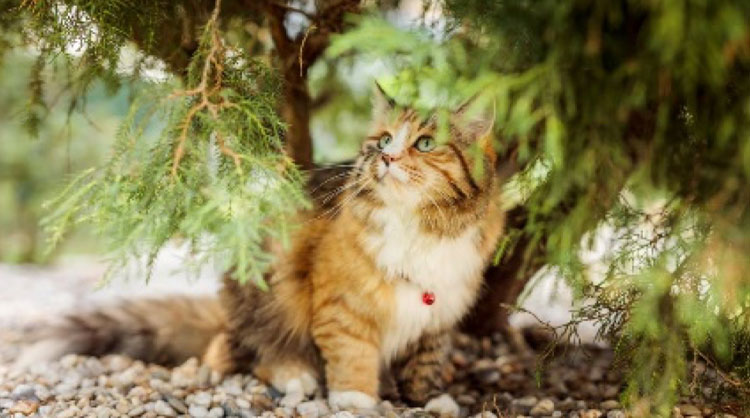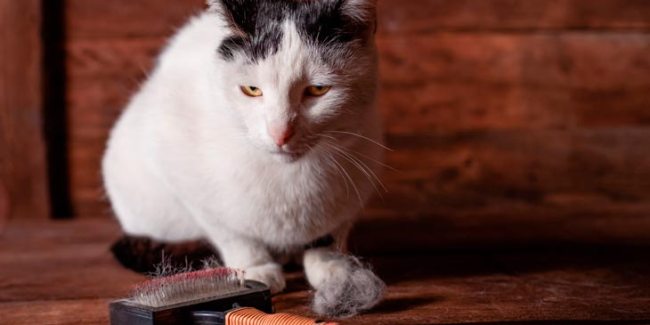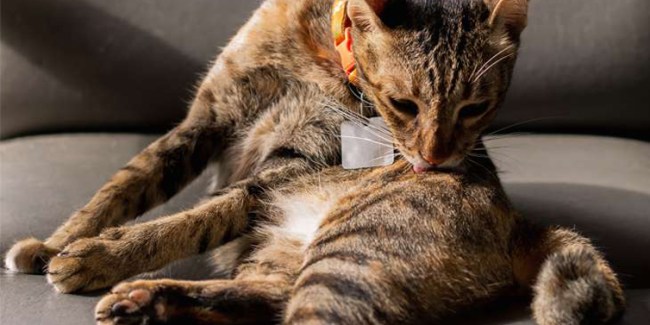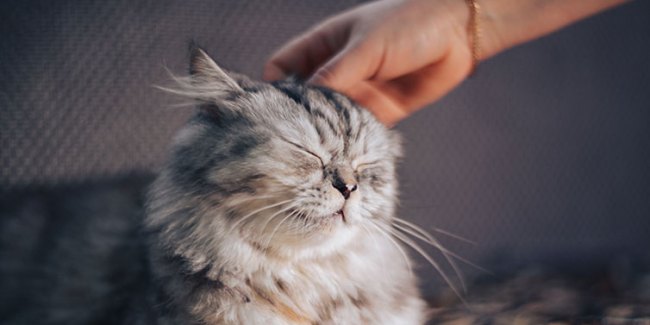Stressed Out! 10 Things that cause stress in cats
CATS

Posted by bravectosouthafrica – 26 July 2019
Is your cat stressed out? Most of the time, it’s difficult to tell. Cats hide physical pain and inner turmoil very well, which makes it tricky to see problems when they arise. Chronic stress can impact a cat’s behaviour and health. Tackle the root cause of stress in cats to put an end to your kitty’s anxiety.
What Causes Stress in Cats?
Change
Cats don’t like change. If you’re moving house, your cat may have a difficult time adjusting to the new home. Small changes like alterations in your routine can also impact your pet’s emotional state. If you move from working at home to working at an office, your absence can make a feline feel panicky.
To ensure your cat stays calm during inevitable change (like moving or a meeting the new baby), get a calming substance from your vet to ease the process. Keep the impact of other stressors, like more time alone, low by making small incremental changes first. After a while, your cat will acclimatise herself with the new practice.
Competition
When cats have to compete for resources, they might tense up. If you have a multi-cat household, ensure each cat has its own feeding and water bowls, enough litter boxes, and scratch poles. Felines also become jealous, so give each cat individual playtime.
Noise
Cats like quiet spaces. Classical music can calm them down, but heavy metal or noise pollution from construction can lead to severe stress in cats. If you’re planning a remodel, consider your kitty’s well-being and confine them to a peaceful area in your home, and avoid playing too loud music near your pet.
Travel
People and dogs may enjoy a car adventure, but cats prefer travelling on their terms. A quick car ride might turn into a nightmare for the inexperienced cat owner. Unfamiliar smells, inexplicable movement and the confines of a cat carrier can cause severe stress in cats. A cat carrier can help limit a cat’s motion sickness, but a too small carrier will make a cat feel claustrophobic.
Avoid feline panic by investing in a cat carrier that will be comfortable for your cat, and drive slowly. Your vet can also recommend a mild sedative if your kitty has a particularly uncomfortable time on the road. If you have to take your cat on an extended car trip, stop for potty breaks and ensure he or she has enough water to drink.
Boredom
Cats need mental and physical stimulation to stay healthy and sane. Without an outlet to spend their energy on, cats can become depressed. A bored cat can act out or develop a somewhat quirky behaviour. Excessive scratching, odd chewing behaviour or increased clinginess can all indicate that a cat is bored. Ensure your fluffy friend spends enough energy by adding playtime into her daily routine and placing enough scratch poles and toys around the house.
Human Anxiety
Cats, much like dogs, can sense anxiety in people and other animals. If their owners are feeling stressed, overwhelmed, or depressed for an extended period, cats may begin to feel anxious too. When you’re feeling low or overworked, don’t forget about your pet. Spending time petting your feline friend can reduce your stress as well as your cat’s unease.
Fear
Similar to the effect it has on humans, fear can make a kitty feel stressed out. Bullying cats within the same household and punishment form pet owners can foster chronic fear in a cat. When it comes to understanding punishment, cats are unlike dogs. Scolding or hitting a cat to discipline it will negatively impact the cat’s well-being.
Kitten and adult cats won’t understand that they shouldn’t do something. Instead they experience the pet owner’s behaviour as erratic and threatening. Rather dissuade inappropriate behaviour by making the habit unattractive, like placing foil over a sofa’s edge, and making an alternative more attractive, e.g. adding a scratch pole with catnip.
Neutering cats, adding more scratch poles and ensuring each cat has a litter box and food bowls can deter bullying.
Vet Visits
Many unfamiliar, and often intimidating, smells populate a vet’s clinic. So, it’s no surprise that the super territorial feline species don’t like their annual check-ups. These strange scents and being touched by the doctor can all be a little too overwhelming. Dodge kitty stress by booking a vet appointment during the quietest time of day, and rewarding your kitty for her good behaviour.
10 Signs of Stress in Cats
- Not using the litter box
- Diarrhoea or constipation
- Excessive grooming that may lead to balding
- Hiding or abnormal isolating behaviour
- Clinginess
- Increased or panicky vocalisation
- Lack of appetite
- Aggression
- Constant sleeping
- Excessive scratching
When you notice stress in your cat, adjust her routine to remedy her angst. Physical annoyances like ticks and fleas can also lead to feline anxiety. Ban the pests for good with Bravecto® Spot-Onfor 3 months protection against ticks and fleas for cats.
Sources:
https://www.thesprucepets.com/stress-in-cats-552164
https://www.petmd.com/cat/centers/nutrition/slideshows/signs-your-cat-might-be-stressed
https://www.softpaws.com/causes-signs-and-treatment-of-stress-in-cats/
https://www.catscratching.com/articles/6-common-causes-of-fear-and-stress-in-cats
Subscribe to our Newsletter
Get to know your furry friend better! Sign up for all things dog- or cat-related.
The Hairy Facts about the dreaded hairball
12 April 2021
Help! My dog’s barking mad! Volume 2
12 April 2021
Your Itchy, Scratchy Cat – All About Cat Skin Problems
12 April 2021
The Dog’s Diet: A Bone of contention?
01 April 2021
Mango Fly Worms: How to Spot and Eliminate them
Posted on November 28,2019
Managing Mange And Mites In Your Dog
Posted on June 11,2018
Why Do Cats Purr and How? Learn What Your Cat Is Saying
Posted on October 14,2020
How to Get Rid of Ear Mites in Dogs
Posted on November 06,2019









